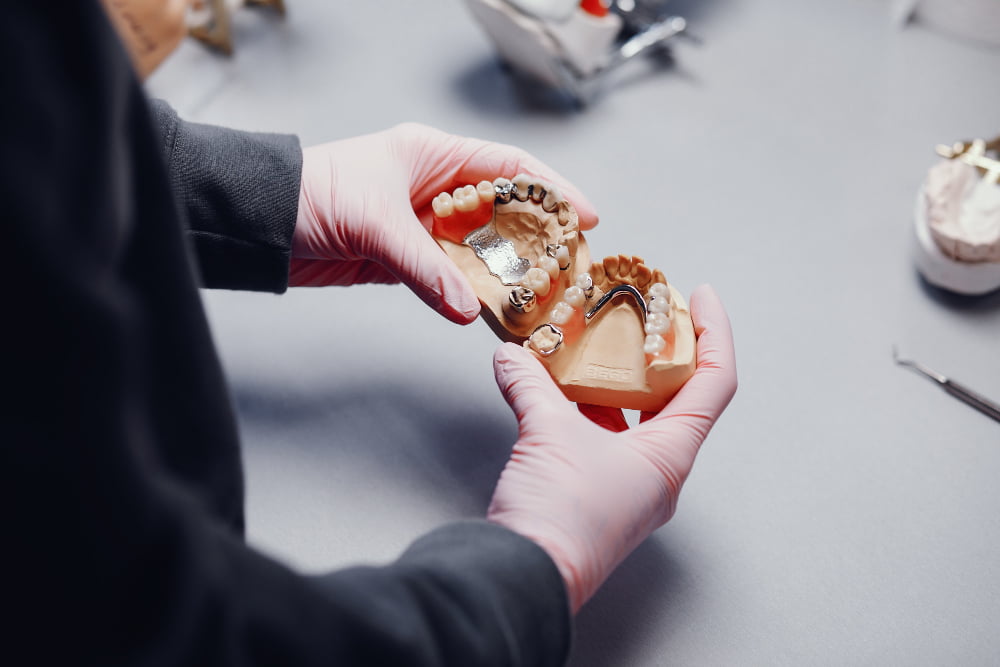
TMJ Disorder Treatment in Abu Dhabi – Boston Dental Center
At Boston Dental Center Abu Dhabi, we provide advanced diagnosis and treatment for Temporomandibular Joint Disorders (TMD/TMJ) to help you restore comfort, improve jaw function, and prevent long-term complications.
The temporomandibular joints (TMJ) are the hinges that connect your jawbone to your skull, allowing smooth movement for speaking, chewing, and yawning. Each joint contains a disc that cushions the joint and ensures fluid motion. When this system of muscles, ligaments, discs, and bones is disrupted, it can lead to a TMJ disorder, causing pain, restricted movement, and other uncomfortable symptoms.
Common Causes of TMJ Disorders
TMJ disorders can develop due to various factors, including: Arthritis – Degenerative or inflammatory joint conditions affecting the jaw Jaw Injury or Trauma – Accidents or blows to the face Dislocation – The ball moves out of the socket, disrupting movement Bite Misalignment – Uneven teeth or jaw positioning Bruxism (Teeth Grinding/Clenching) – Often related to stress Muscle Tension – Resulting from posture or repetitive jaw movements
Signs & Symptoms of TMJ Disorders
If you are experiencing any of the following, you may have a TMJ disorder: Jaw pain or tenderness in the face, jaw joint, neck, or shoulders Pain around the ear while chewing, speaking, or opening your mouth Clicking, popping, or grating sounds when moving the jaw Jaw locking in open or closed position Difficulty chewing or sudden bite changes Facial swelling on one or both sides Muscle fatigue or tightness in the jaw
TMJ Disorder Diagnosis at Boston Dental Center Abu Dhabi
Book Your TMJ Consultation Today
What makes Dr. Khaled amazing is his genuine understanding and empathy towards patients who harbor fear towards dental procedures. He is incredibly patient, taking the time to explain each step of the process, ensuring that I was comfortable and informed throughout my treatment. His approach is gentle, and he employs techniques that significantly minimize discomfort, something that I, being extremely afraid of pain, greatly appreciated.
Dr. Khaled's professionalism, coupled with his skillful touch, has made my visits to the clinic something I no longer dread. It's rare to find a healthcare professional who not only excels in their field but also understands the importance of creating a positive and pain-free experience for their patients. Dr. Khaled has been a great dentist to me, effectively treating my dental issues while simultaneously helping me overcome my fear of dental procedures. I highly recommend him to anyone looking for a compassionate and skilled dentist.
Thank you Dr. khaled!!
Regards,
Imed
Nice staff
(Had a tooth extraction and dental implant treatment)














